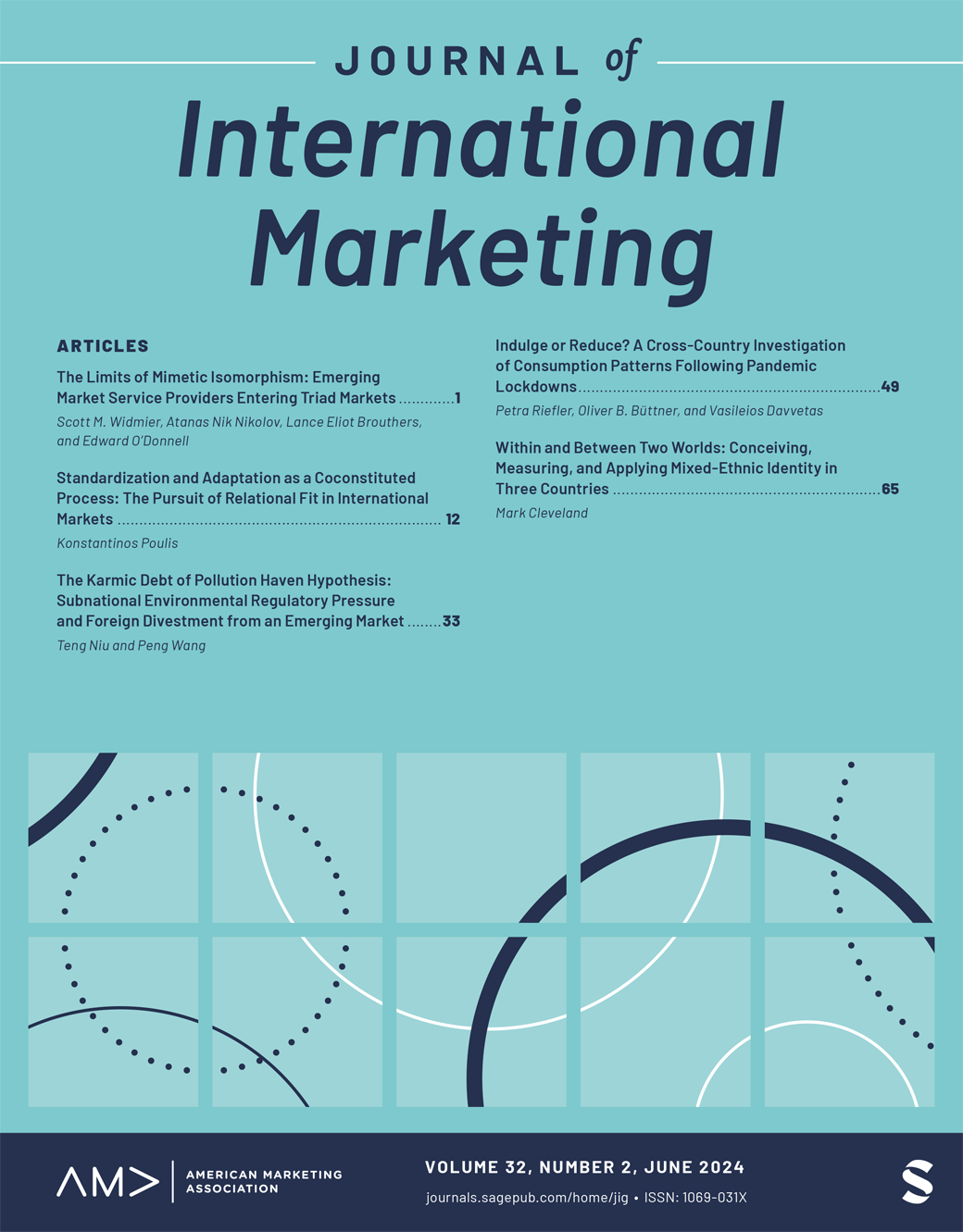Leveraging Interfirm Relationships in China: Western Relational Governance or Guanxi? Domestic Versus Foreign Firms
IF 4.2
2区 管理学
Q1 BUSINESS
引用次数: 8
Abstract
With the growing importance of strategic alliances and supply chains as competitive units, academics and practitioners are interested in understanding the techniques used by firms to leverage interfirm relationships to gain a competitive advantage. Studies conducted in the Western context underline the role of relational governance (i.e., the modern Western way), whereas works in the Chinese context highlight the importance of guanxi (i.e., the traditional Chinese way). Today’s Chinese economy operates as a hybrid of the Western modern business model and traditional Chinese patterns with the coexistence of Western relational governance and guanxi. Therefore, this study addresses two issues: (1) whether these two types of governance interact as substitutes or complements in leveraging interfirm relationships and (2) whether and how foreign firms differ from their Chinese domestic counterparts in the use of these two types of governance to improve performance. Drawing on data collected from 132 third-party logistics providers in China, this study shows that Western relational governance and guanxi function as substitutes in improving performance. Moreover, while guanxi contributes to performance in a similar manner in Chinese domestic firms and foreign firms, Western relational governance is more effective for foreign firms than for Chinese domestic firms. Furthermore, the joint role (i.e., interaction effect) of Western relational governance and guanxi in improving performance also differs: these two forms of governance function as substitutes in foreign firms, whereas they have no significant interaction in Chinese domestic firms.利用中国企业间关系:西方关系治理还是关系治理?国内公司与外国公司
随着战略联盟和供应链作为竞争单位的重要性越来越大,学者和从业者有兴趣了解企业利用企业间关系获得竞争优势的技术。在西方背景下进行的研究强调了关系治理(即现代西方方式)的作用,而在中国背景下的研究则强调了关系(即传统中国方式)的重要性。今天的中国经济是西方现代商业模式和中国传统模式的混合体,西方关系治理和关系共存。因此,本研究解决了两个问题:(1)这两种类型的治理在利用公司间关系方面是否作为替代或补充相互作用;(2)外国公司在使用这两种治理来提高绩效方面是否以及如何与中国国内同行不同。根据从中国132家第三方物流供应商收集的数据,本研究表明,西方关系治理和关系在改善绩效方面起着替代作用。此外,尽管关系对中国本土企业和外国企业绩效的贡献方式相似,但西方关系治理对外国企业比中国本土企业更有效。此外,西方关系治理和关系在改善绩效方面的共同作用(即互动效应)也有所不同:这两种治理形式在外国企业中起着替代作用,而在中国国内企业中没有显著的互动。
本文章由计算机程序翻译,如有差异,请以英文原文为准。
求助全文
约1分钟内获得全文
求助全文
来源期刊

Journal of International Marketing
BUSINESS-
CiteScore
8.70
自引率
17.20%
发文量
28
期刊介绍:
As the globalization of markets continues at a rapid pace, business practitioners and educators alike face the challenge of staying current with the developments. Marketing managers require a source of new information and insights on international business events. International marketing educators require a forum for disseminating their thoughts and research findings. Journal of International Marketing(JIM) is an international, peer-reviewed journal dedicated to advancing international marketing practice, research, and theory. Contributions addressing any aspect of international marketing management are published each quarter.
 求助内容:
求助内容: 应助结果提醒方式:
应助结果提醒方式:


